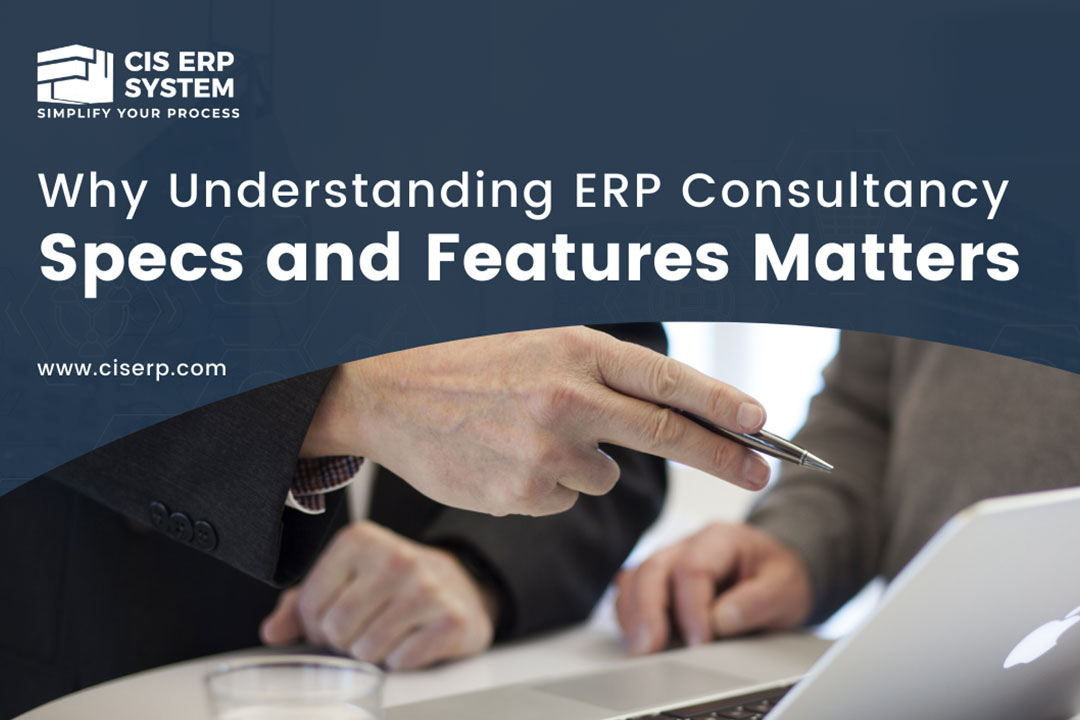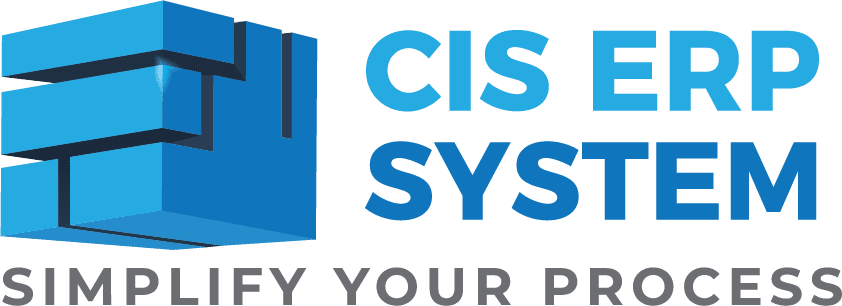
The Growing Relevance Of An ERP Consultant
Enterprise Resource Planning (ERP) systems have become an essential requirement for businesses today. They have penetrated every vein of a company’s infrastructure becoming an indispensable part of modern operations.
From manufacturing and inventory management to finance and human resources, it has integrated its way into the corporate ecosystem. It provides a focal point of every function by streamlining operations. This enhances efficiency and data-driven insights which leads to better decision making.
Yet, the mere presence of ERP is not enough. It is a slightly more complicated process than purchasing software. To utilize its true effectiveness, businesses need to collaborate with ERP consultants.
They understand not only the true power of the software but how to mould it to fit the company’s requirements. They leverage their prowess to ensure that a business has the maximum chance of succeeding by optimizing its profits. Hence, it is important to explore why ERP consultants have seen their prominence rise over the years.
The Rising Significance Of The Software
The reason why ERP consultants have risen in popularity is primarily due to the constantly evolving software. They have come a long way from simple, on-premise solutions to its current comprehensive, cloud-based system.
The latter can tap into each aspect of modern business operations. As companies grow and the world becomes increasingly digitized, their software’s complexity is bound to increase as well. Hence, a typical ERP system is likely to include the following.
- Finance and Accounting: Managing budgets, financial reporting, accounts payable and receivable, and regulatory compliance.
- Supply Chain Management: Overseeing procurement, production, logistics, and inventory management.
- Customer Relationship Management (CRM): Managing customer data, sales, and marketing efforts.
- Human Resources (HR): Handling employee information, payroll, recruitment, and performance management.
- Manufacturing: Overseeing production schedules, quality control, and asset management.
Having said that, the software is constantly being upgraded to keep up with growing, diversified company needs. Hence, it is necessary to hire an ERP consulting firm or a private ERP ‘berater’ to ensure smooth sailing.
The ERP Consultant Steps
1. Define Business Requirements
The first stage of a successful ERP implementation process begins with defining what the company requires from it. To the people who do not know much about the technical process, this can seem overwhelming. Hence, many either make mistakes during the integration process or avoid it altogether.
It is possible to solve this problem through the guidance of an ERP consultant. They will help guide the company through the entire process. Helping it determine the features and specifications that will give it the best possible chance to grow in the market.
Having said that, there are a diverse set of needs required by companies belonging to various industries. Hence, the nature of the business’ operations decides which path the ERP consultant will recommend.
That’s why understanding the distinct requirements of the company will help owners create a roadmap in their heads. The following are some details that are often required by owners in their company’s framework.
– Industry Specific Needs: Does the business operate in an industry that has unique requirements? These may include compliance regulations or complex production workflows.
For instance, an ERP system for a healthcare provider may need to comply with HIPAA regulations. Meanwhile, another one for a manufacturing company may require intricate supply chain management features.
– Scalability and Growth: How well can the system scale with the organization as it grows? The plan may be to expand into new markets, launch new products, or hire more employees. That’s why understanding the scalability features remains crucial.
– User Requirements: What features and functionalities do your employees require? Understanding the workflows and pain points of various departments can help identify which features are necessary to improve efficiency.
2. The ERP Consultant’s Arrival
ERP consultants carry with them a distinct and varied set of skills. This makes the implementation of enterprise software remarkably easier. They ensure that the software is completely aligned with the business’s strategic goals and plans.
The ERP consultant helps to limit the abundance of features that the software offers. Having features that are not necessary in your system not only takes up needless time, but may confuse some people.
That’s why it is better to have an efficient setup in place that’s customized to the company’s needs. The ERP consultants help guide companies on various fronts.
– Customization vs. Configuration: While some ERP systems offer highly customizable features, others are more rigid and focus on pre-configured options.
Consultants help businesses determine whether customization or configuration will best suit their needs. Customization might require additional resources and time. However, it can deliver a more tailored solution.
– Third-Party Integrations: Often, ERP systems need to integrate with other software used by the organization. These may include Customer Relationship Management (CRM) tools, e-commerce platforms, or payroll software. ERP consultants have the expertise to help ensure that these integrations work smoothly.
– Cloud vs. On-Premise Solutions: ERP solutions are now predominantly cloud-based. They offer greater flexibility, scalability, and cost savings. However, some businesses might still prefer on-premise solutions for reasons such as security concerns or regulatory requirements.
Consultants can provide expert advice on the advantages and limitations of each type of deployment. Thus, helping owners come to an informed decision that best suits their needs.
– Security and Compliance: Given the vast amount of sensitive data that flows through ERP systems, safety measures are absolutely necessary. These security features are paramount.
Consultants will help the company assess whether the ERP system complies with industry standards and regulatory requirements. These may include GDPR or SOX.
3. Modern Customization Requirements
The true power of the ERP software can only be harnessed through a distinct customization process. It helps the company create a piece that perfectly fits their puzzle instead of finding the right one.
Though they offer a vast amount of features, companies may require specific functionalities and modules. Let’s take a closer look at what these requirements may be.
– Unique Reporting Needs: The ability to create custom reports that reflect the business’s key performance indicators (KPIs) is essential. These reports help make the decision-making process easier and more objective. Customizing the ERP’s reporting tools allows the system to meet these specific needs.
– Workflow Automation: These systems often have predefined workflows for standard tasks. However, businesses may need to automate tasks that are unique to their operations and occur frequently executed. For example, a distribution company might need a customized inventory replenishment system.
– User Interface (UI) Modifications: The software’s user interface may not always fit the organization’s specific workflows. Customizing the UI ensures that employees can easily navigate the system and access the data they need. Furthermore, it helps the existing employees to familiarize themselves with it from the beginning.
4. Measuring Its Effectiveness
Though the various benefits of the ERP system keep on increasing, it comes at a hefty price. Additionally, the arrival of an ERP consultant will raise the bills to a significant amount.
Moreover, the integration process may take up a lot of time. Hence, the company has to bear costs on more than one front. That’s why it is important to keep tabs on the Return On Investments (ROIs)
Though they are initially pricey along with the addition of an ERP consultant, they bear fruit in the long run. It not only improves the efficiency of a business’s operations, but it enriches the entire decision-making process. The abundance of available data provides companies with the ideal platform for cross-departmental collaboration.
With only a single point of concentration, each department utilizes the data it needs to make the best decision possible. Moreover, it helps scalability and growth of the business. A skilled ERP consultant will amend the system as the company grows. They design the layout with future aspects in mind.
5. A Smooth Transition Process
Arguably, the most pivotal aspect of the entire process remains training the employees on how to use it. No matter how dynamic and robust a business process management software becomes, the onus will be on the user.
That’s why an ERP consultant is necessary in the modern market. They conduct sessions to help employees get up to speed. Since they have an acute understanding of the business, they can tailor these sessions to fit their unique needs.
An ERP consultant not only offers help through the sessions, but is also available once the software goes live. Their support channels are open to resolve any queries or problems. Thus, ensuring that any hiccups are dealt with promptly. Thereby keeping operations fluent and efficient.
Conclusion
At the end of the day, there are many who would argue that an ERP consultant remains a needless expense. However, those who opt for it are aware of its long-term benefits to the company. They ensure that all their decisions are driven by data. Additionally, they do their best to create a rich cross-departmental network. Hence, giving their business the best chance to not only survive in the market, but thrive there.

